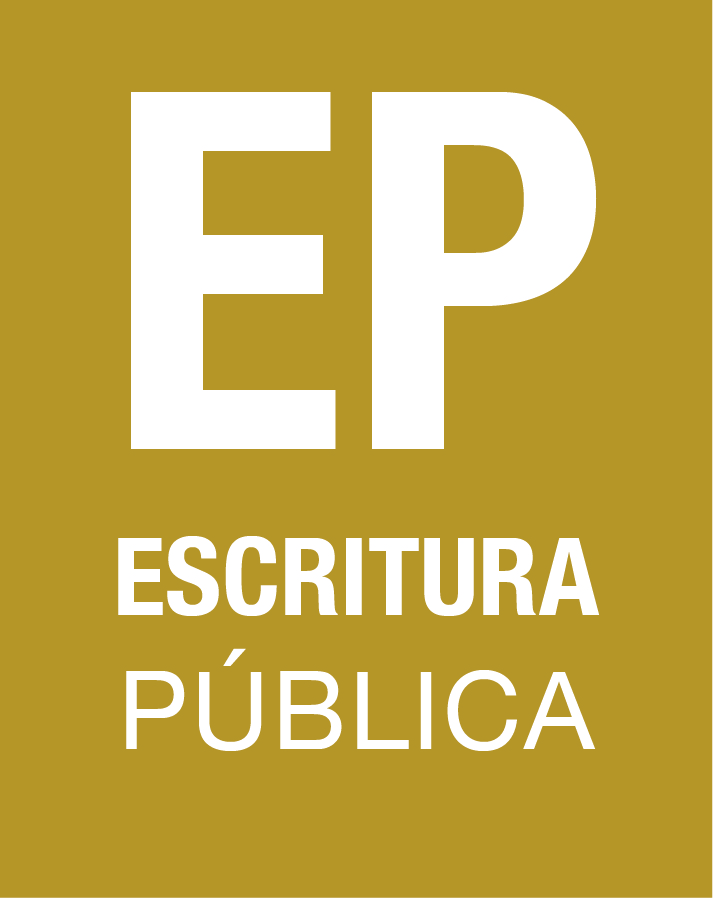EL ESCAPARATE

JENS BORMANN
LL.M. (Harvard). Presidente del Consejo Federal del Notariado alemán (Bundesnotarkammer)
LL.M. (Harvard). President of the Federal Council of German Notaries (Bundesnotarkammer)
Alemania aprueba la constitución “online” de sociedades en presencia de notario
Con la adopción de la Directiva (UE) 2019/1151 sobre la utilización de herramientas y procesos digitales en el ámbito del Derecho de sociedades, el legislador europeo ha dado un paso importante para adaptar el derecho de sociedades europeo a la era digital. La idea central es introducir la constitución en línea de sociedades de capital en toda la Unión. Además, se regulan los procedimientos en línea para las solicitudes previas a la inscripción en el registro mercantil y la presentación de documentos de sociedades y sucursales.
La introducción de la constitución en línea en toda la Unión facilitará la creación de sociedades de capital tanto nacionales como transfronterizas. Al mismo tiempo, la Directiva demuestra un profundo respeto por los diferentes sistemas y tradiciones jurídicas de los Estados miembros en el mundo electrónico y les permite adaptar sus tradiciones jurídicas nacionales a los requisitos europeos, en particular, mediante la intervención obligatoria del notario, cuya importancia para garantizar la seguridad jurídica y evitar los abusos se reconoce también en la era digital.
Saludamos muy favorablemente este planteamiento. En efecto, en países como España y Alemania, la constitución de sociedades y las posteriores modificaciones estructurales están sujetas al control preventivo del notario. Hay varias razones para esto.
El control preventivo garantiza que las sociedades se constituyan y sigan existiendo de forma legalmente eficaz. Al mismo tiempo, la identificación fiable de los accionistas y administradores por parte del notario permite determinar con certeza quién está detrás de una sociedad y quién puede representarla. A continuación, se inscriben en el registro mercantil los datos relativos a la existencia de la sociedad, sus estatutos y las personas facultadas para representarla, así como la manera en que están autorizadas a hacerlo. Gracias al «control de entrada» por el notario, los actores de las transacciones legales pueden basarse en la información registral, dotada de fe pública. Esto crea un entorno seguro, sencillo y de confianza para las transacciones legales y contribuye a una fiscalidad eficaz y a la lucha contra el blanqueo de capitales.
Sin embargo, la intervención del notario va mucho más allá. La complejidad del derecho de sociedades requiere soluciones a medida que, en la mayoría de los casos, se consiguen a través de estatutos redactados individualmente. Cuestiones importantes como el nombre y el objeto de la sociedad o el régimen económico matrimonial de los accionistas deben aclararse caso por caso. Por este motivo, los Estados miembros también pueden exigir la intervención obligatoria de los notarios en este ámbito.
El proyecto de ley del Ministerio Federal alemán de Justicia, “DiRUG”, de 18 de diciembre de 2020, transpone la Directiva a la legislación alemana. Fue aprobado por el Gabinete Federal (Bundeskabinett) el 10 de febrero de 2021 y por el Parlamento federal (Bundestag) el 10 de junio sin cambios significativos. Como cuenta con el apoyo del Consejo federal (Bundesrat), se espera que se publique pronto en el Boletín Oficial Federal.
Con la ley DiRUG el legislador alemán ha decidido deliberadamente mantener los principios del proceso de otorgamiento de escrituras notariales en presencia física y trasladarlos de forma equivalente al mundo digital. Las piedras angulares de esta transferencia son la videoconferencia con el notario, la identificación digital segura y la firma electrónica cualificada.
En este contexto, solo se permite otorgar escrituras en línea a través del sistema de video comunicación operado por el Consejo Federal del Notariado alemán (Bundesnotarkammer), lo que garantiza los más altos estándares de seguridad, fiabilidad y disponibilidad de los datos y evita que el procedimiento de autenticación se realice a través de servidores extranjeros.
Además, la identificación fiable de los interesados conlleva dos fases: la identificación del fundador a través del sistema alemán de identificación electrónica (eID) y la lectura de la fotografía del documento identidad o pasaporte, que el notario compara con la apariencia del interesado. Este segundo paso es imprescindible para evitar casos de representación encubierta mediante el uso abusivo de un medio de identificación electrónico. El resultado será una escritura electrónica original, firmada por las partes y el notario con una firma electrónica cualificada y conservada en el Archivo Electrónico de Escrituras de la Bundesnotarkammer.
El procedimiento de constitución en línea sólo se utiliza para autenticar escrituras de constitución de una GmbH alemana y para las resoluciones adoptadas en el contexto de la constitución de sociedades, como las que versan sobre el nombramiento de los primeros administradores. Así pues, el legislador alemán se ha pronunciado apropiadamente en contra de una apertura general del procedimiento en línea a todos los procedimientos notariales, dado que los fines de la forma notarial no pueden garantizarse en la misma medida a través un procedimiento en línea. Así, en el derecho de familia y de sucesiones, la comparecencia personal ante el notario tiene por objeto proteger a los interesados de decisiones apresuradas y llamar su atención sobre la especial importancia de la transacción. De modo similar, en derecho inmobiliario no es raro que consumidores y empresarios se encuentren cara a cara y el notario tome precauciones especiales.
En definitiva, la DiRUG no hace de la digitalización un fin en sí misma, sino que permite simplificar y acelerar los procedimientos cuando ello es compatible con las estructuras y funciones vigentes de la autenticación notarial en el sistema de administración preventiva de justicia. Por lo tanto, el sentido de la proporción que han mostrado los legisladores europeos y nacionales debe ser saludado plenamente y sin reservas.
Germany approves the online incorporation of companies in the presence of a notary
Following the Directive (EU) 2019/1151 on the use of digital tools and processes in the field of company law, the European legislator has taken an important step to adapt European company law to the digital age. The main idea is to introduce the online incorporation of companies throughout the Union. In addition, online procedures are regulated for applications prior to registration in the commercial register and the presentation of company and branch documents.
The online incorporation throughout the Union will facilitate the creation of both national and cross-border companies. At the same time, the Directive shows a deep respect for the different legal systems and traditions of the Member States in the electronic world and enables them to adapt their national legal traditions to European requirements, in particular through the compulsory intervention of the notary, whose importance to guarantee legal certainty and prevent abuse is also recognized in the digital age.
We very much welcome this approach. Indeed, in countries such as Spain and Germany, the incorporation of companies and subsequent structural modifications are subject to preventive control by the notary. Several reasons explain this.
Preventive control guarantees that companies are established and keep on existing in a legally effective manner. At the same time, the reliable identification of shareholders and administrators by the notary allows to determine with certainty who is behind a company and who can represent it. In addition, data on the existence of the company, its statutes and the persons empowered to represent it, as well as the way in which they are authorized to do so, are entered in the commercial register. Thanks to the «entry control» by the notary, the actors of the legal transactions can be based on the registry information, endowed with public faith. This creates a safe, simple and trustworthy environment for legal transactions and contributes to effective taxation and the fight against money laundering.
However, the intervention of the notary goes much further. The complexity of company law requires tailored solutions which, in most cases, are achieved through individually drafted statutes. Important issues such as the name and purpose of the company or the shareholders’ matrimonial property regime must be clarified on a case-by-case basis. For this reason, Member States may also require the compulsory intervention of notaries in this area.
The draft law of the German Federal Ministry of Justice,“DiRUG”, as of 18 December 2020, transposes the Directive into the German law. It was approved by the Federal Cabinet (Bundeskabinett) on February 10, 2021 and by the Federal Parliament (Bundestag) on June 10 without significant changes. As it is supported by the Federal Council (Bundesrat), it is expected to be published soon in the Federal Official Gazette.
With the DiRUG law, the German legislator has deliberately decided to maintain the principles of the process of granting notarial deeds in physical presence and transfer them in an equivalent way to the digital world. The cornerstones of this transfer are the videoconference with the notary, the secure digital identification and the qualified electronic signature.
In this context, it is only allowed to grant deeds online through the video communication system operated by the Federal Council of German Notaries (Bundesnotarkammer), which guarantees the highest standards of security, reliability and data availability and prevents the authentication procedure is done through foreign servers.
Moreover, the reliable identification of the interested parties involves two phases: the identification of the founder through the German electronic identification system (eID) and the reading of the photograph of the identity document or passport, which the notary compares with the appearance of the interested party. This second step is essential to avoid cases of covert representation through the abusive use of an electronic means of identification. The result will be an original electronic deed, signed by the parties and the notary with a qualified electronic signature and kept in the Electronic Archive of Deeds of the Bundesnotarkammer.
The online incorporation procedure is only used for authenticating articles of incorporation of a German GmbH and for resolutions taken in the context of company formation, such as those concerning the appointment of the first directors. Thus, the German legislator has appropriately ruled against a general opening of the online procedure to all notarial procedures, since the purposes of the notarial form cannot be guaranteed to the same extent through an online procedure. For instance, in family and inheritance law, the personal appearance before the notary is intended to protect the interested parties from hasty decisions and to draw their attention to the special importance of the transaction. Similarly, in real estate law it is not uncommon for consumers and entrepreneurs to meet face to face and the notary to take special precautions.
In short, the DiRUG does not see digitization as an end in itself, but rather simplifies and accelerates procedures when compatible with the current structures and functions of notarial authentication in the preventive administration of justice system. Therefore, the sense of proportion shown by the European and national legislators must be fully and unreservedly welcomed.



